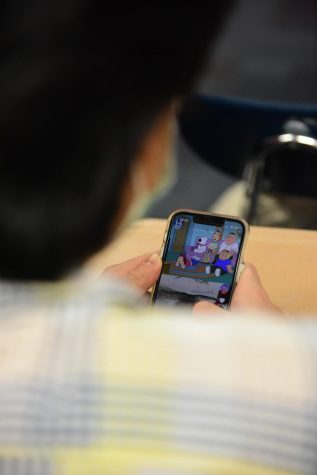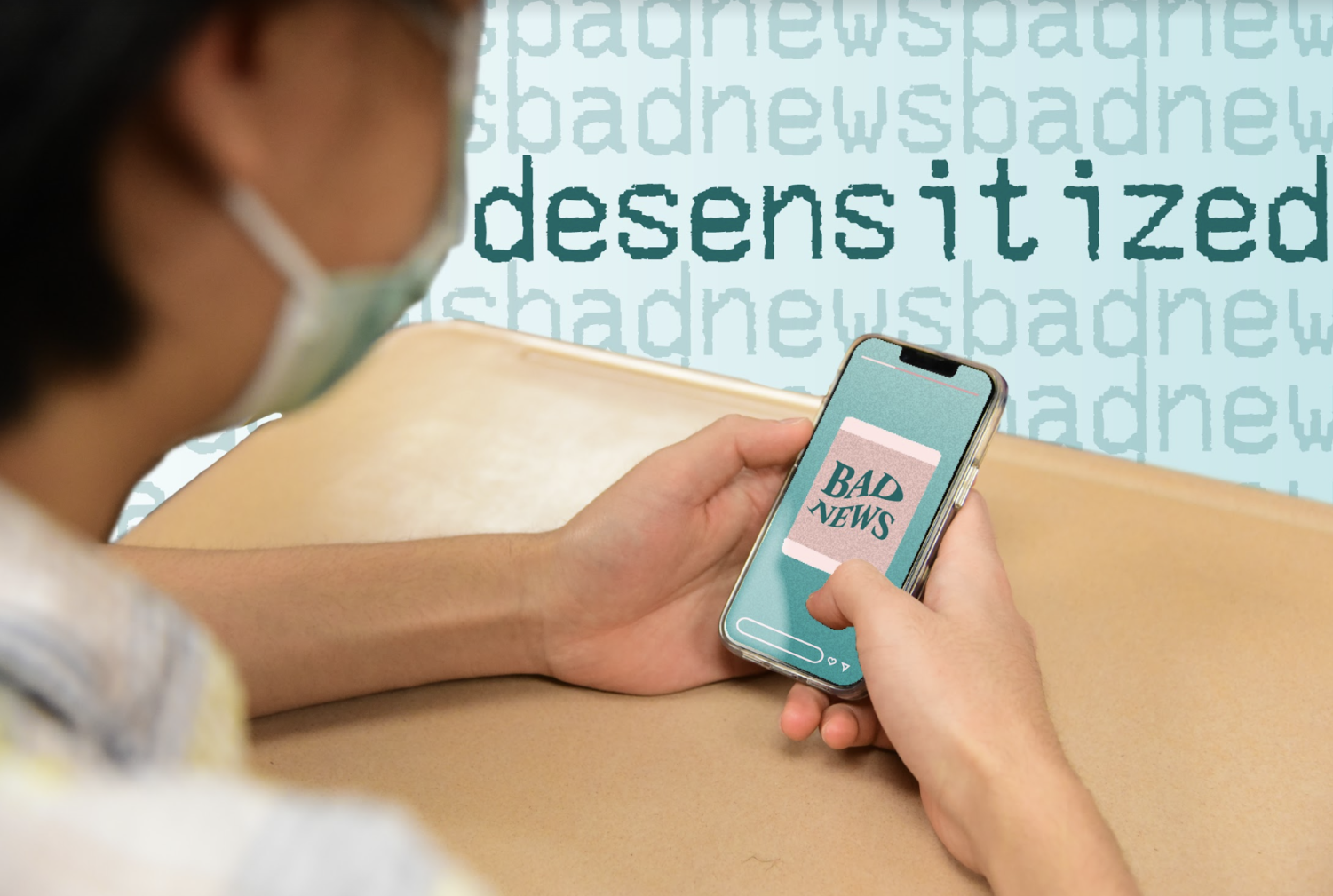Your donation will support the student journalists of Carmel High School - IN. Your contribution will allow us to purchase equipment and cover our annual website hosting costs.
Students, professor debate effects of seeing violence on social media, desensitization
January 26, 2023
Senior Eric Yang said he believes the massive amount and frequency of content on social media can be overwhelming.
“You’re scrolling, and you get so much content of all different sorts at the same exact time,” Yang said. “You, as a person, aren’t meant to consume at such a rate. You’re just subjected to so many different types of stimulation that it’s just very mind-numbing. Like, you’re scrolling and…one second you see someone making a skit and then (the) next second, some sort of international tragedy, and then you scroll again and you see another meme. It’s just a lot of different stuff that, really, you no longer think of it as important anymore.”
Senior Sarah Alhaddad said she agreed with Yang.
“(Social media) can create a lot of noise and to the average (person), it can be easy to turn a blind eye to these social justice issues and political issues,” Alhaddad said. “It can be easy for those people to tune it out and see all of these different issues going on around the world and just look away from it. Because there’s so many, it’s overwhelming.”
Alhaddad also said she finds it difficult to see violence on social media and then scroll away.
“There’s some things that I’ve seen on social media where it’s really horrific,” she said. “It’s hard to scroll away from those things. It’s really weird to absorb that information and to see it happen in a video in front of you and go back to living your life in America where you go to school, you come back, you do homework and you’re a kid.”

Associate professor at Indiana University’s Media School, said research has shown exposure to violence can desensitize people. However, he said he doesn’t believe desensitization to violence is a major concern.
“There’s research on desensitization that suggests that it is possible to become desensitized to violence if we are repeatedly exposed to it, but I do think the context really matters here. And it matters more than any desensitization that effect might suggest,” Weaver said. “If we’re having an emotional response to consequences to harm, that’s a good thing, first of all, and it suggests that what’s happening is…that we’re internalizing that violence is problematic.”
Senior Somayeh Gambles said she agrees with Weaver.
“I can see how you can see (a violent video) and be like, ‘I can’t even fathom and believe that that’s happening so I’m just not even going to acknowledge it,’” she said. “I can see how people do that, but at the same time, I think that it’s beneficial, I just do, personally.”
In regards to social media, Weaver said he believes violence portrayed on social media can actually be beneficial to the way people understand violence.
“In my own work, I have found—at least in sites like YouTube and TikTok—there’s actually less violence than you would see on television. And when the violence is there, it tends to be accompanied by harm and pain, consequences,” he said. “In a way, it’s a more responsible representation of violence than what you see on TV or in movies or in video games, which means we presumably see less effects or even it’d be beneficial in some ways.”
However, though Weaver said it is good to have an emotional response to violence, Yang said he is concerned about experiencing those emotional responses while viewing social media.
“Even if they do see something that truly shakes them to their core or just was viscerally shocking, you just scroll one more time and you can see something that gives you dopamine or just excites you,” Yang said. “It’s this whiplash of emotions…that makes it (so) when you actually feel those emotions, either genuinely or induced within you, it’s weakened, right? Because you’re constantly going from these feelings to feelings, emotion to emotion, that when you actually feel it, it’s just not there as much.”
On that note, Weaver said he hasn’t heard of any research done on that whiplash, but he said he understands the concern. Weaver said the rapid growth of social media has made it difficult to fully research and understand its effects.
“The juxtaposition of humor and violence is really interesting, and certainly could contribute to maybe a desensitization or maybe a reduction in inhibition. But I don’t know,” Weaver said. “That’s the reality of media use now. It’s that rapid fire and that potential for these huge swings.”
This is the second of three parts for this story on the impact of social media. The third part will center around the use of social media as a way to raise awareness. Read the third part here on Jan. 28.
